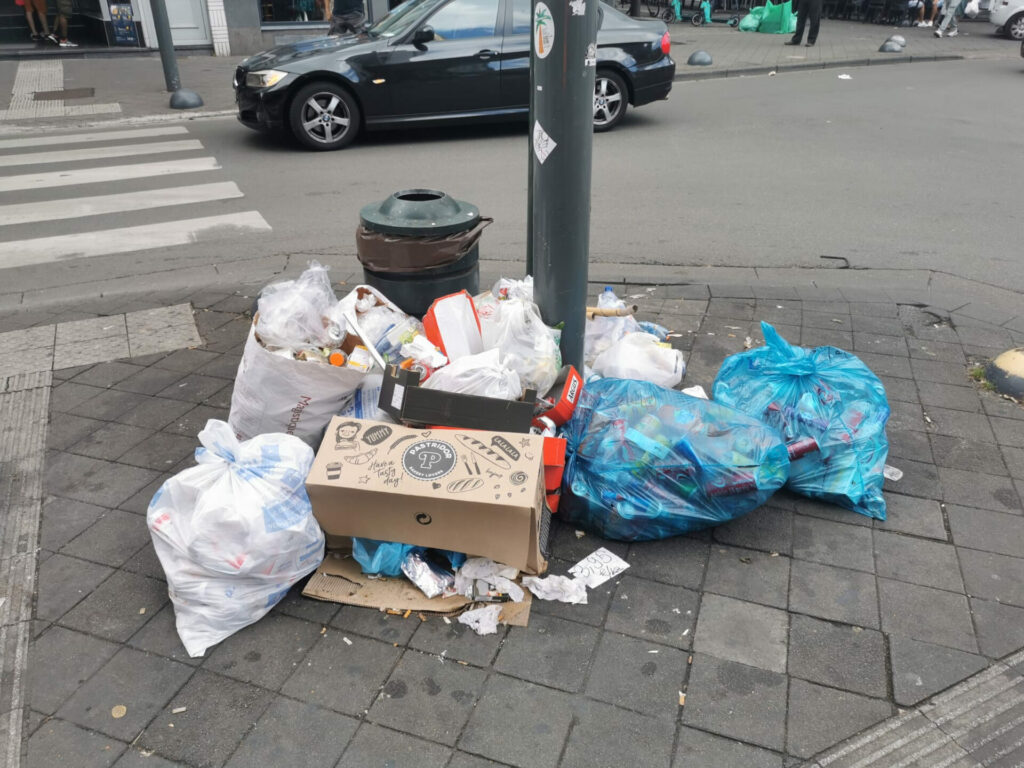To solve the problem of illegal waste dumping in the Brussels-Capital Region, a real paradigm shift is needed: away from the white, blue and orange bags and towards underground containers, said Fouad Ahidar of the Brussels socialist one.brussels party.
Putting waste bags on the side of the street is outdated, especially for the European capital of Brussels, with drawbacks on illegal dumping to the increasing nuisance from vermin. For residents and the many tourists who visit Brussels, the lack of cleanliness is one of the biggest drawbacks to the city.
"Brussels is dirty and we are not going to solve that problem with more cleaning teams. We have to offer an alternative," said Ahidar.
"Other European capitals from Amsterdam and Paris to Prague and Ljubljana are all opting for underground waste containers. Why does Brussels not do that? The benefits are obvious. We need to get rid of the bin bag."
On Wednesday, a report by the investigative VRT programme 'Pano' revealed that in the Brussels municipality of Schaerbeek alone, over 19 tonnes of illegally dumped waste is collected per day. In Brussels City, illegal waste amounts to 2,500 tonnes every year – the weight of the Atomium.
Related News
- 50 tonnes each day: Brussels struggles with growing mountain of waste
- Brussels reforms waste collection system: What changes?
Despite the fact that the Brussels Regional Government agreed that all new neighbourhoods would get underground containers, little of this appears to be happening in practice.
Additionally, two Brussels municipalities have signalled that Bruxelles Propreté is actively opposing the intention to install underground containers.
Meanwhile, Brussels Environment Minister Alain Maron also spoke out against underground containers because the system could lead to poorer waste separation and because it would cost parking spaces. Ahidar, however, argued that it is "of course" possible to enforce proper waste separation, even underground, for instance by deploying more inspectors.
The Brussels Government has also committed to the goal of eliminating 65,000 parking spaces by 2030: freed-up space that could be used for underground containers on every street corner. Additionally, Maron's cleanliness plan containing concrete actions has yet to be presented to the Brussels Parliament, Ahidar stressed.
"Patience is beginning to run out. Not only with me but also with the people of Brussels who no longer want to live in a dirty city."
"Let us hope that the Government's cleanliness plan will provide clear solutions. It has been agreed that underground waste containers will be installed in new neighbourhoods," he added. "I find it incomprehensible that this is being actively blocked by Bruxelles Propreté and Maron."

